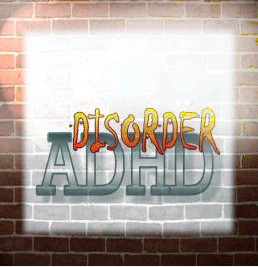
There is not yet a naming consensus. Below are listed several terms that have been used, past and present. One challenge in taxonomy is that some patterns of behavior are labeled by experts symptoms or sub-types of ADHD, while other experts label those same patterns as their own disorders, independent of ADHD. For the purposes of this article, the "Terminology" section will be used only to name ADHD and its near equivalents, while the names for its manifestations and subtypes will be listed in 'Symptoms', below.
- Attention-deficit hyperactivity disorder (ADHD): In 1987, ADD was in
effect renamed to ADHD in the DSM-III-R. In it, ADHD was broken down into
three subtypes:
- predominantly inattentive ADHD
- predominantly hyperactive-impulsive ADHD
- combined type ADHD
- Attention deficit disorder (ADD): This term was first introduced in DSM-III, the 1980 edition. Is considered by some to be obsolete, and by others to be a synonym for the predominantly inattentive type of ADHD.
- Attention-deficit syndrome (ADS): Equivalent to ADHD, but used to avoid the connotations of "disorder".
- Hyperkinetic syndrome (HKS): Equivalent to ADHD, but largely obsolete in the United States, still used in some places world wide.
- Minimal cerebral dysfunction (MCD): Equivalent to ADHD, but largely obsolete in the United States, though still commonly used internationally.
- Minimal brain dysfunction or Minimal brain damage (MBD): Similar to
ADHD, now obsolete.
Cause:
The exact cause(s) of ADHD are not conclusively known. Scientific evidence suggests most strongly that, in many cases, the disorder is genetically transmitted and is caused by an imbalance or deficiency in certain chemicals that regulate the efficiency with which the brain controls behavior.
A 1990 study at the National Institute of Mental Health correlated ADHD with a series of metabolic abnormalities in the brain, providing further evidence that ADHD is a neurological disorder. While heredity is often indicated, some believe that problems in prenatal development, birth complications, or later neurological damage may contribute to ADHD.




